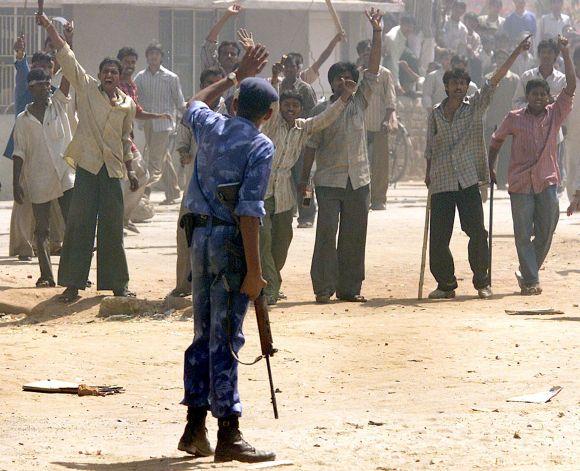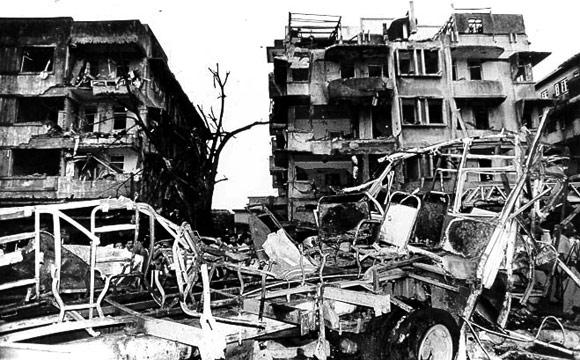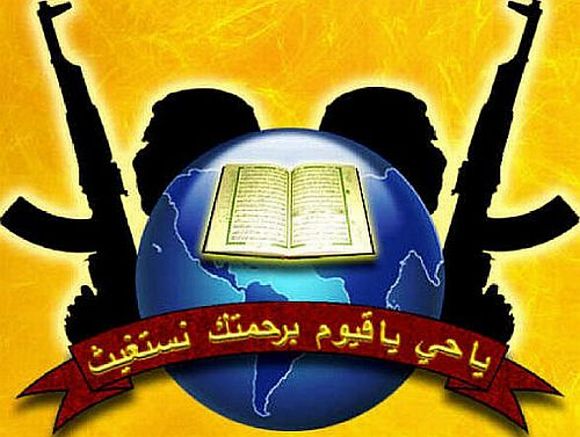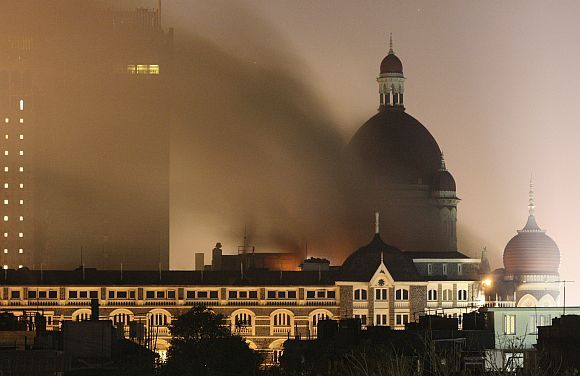 | « Back to article | Print this article |
Why terrorism cannot be linked to the Gujarat riots
When we seek a justification for dastardly terrorist acts where none exists, we weaken our resolve and embolden the terrorists, imbuing them with a false sense of righteousness. This is the biggest fallacy of our anti-terror drive, says Vivek Gumaste.
Human beings are logical animals. Rationality has a tempering effect on the human mind; it dents emotional outrage, evokes justification and mitigates the severity of an infraction.
However, attempts to rationalise the recently arrested Abu Jundal's diabolical role in the Mumbai massacre and his descent into terrorism by invoking the Gujarat riots as the raison d'etre is an exercise in warped logic; one that defies human comprehension; more of an intentional obfuscation with a vested agenda that deceptively strives to blur the debate and confer some validity to an atrocity where none exists.
Time and again, a section of the media has emphasised vendetta as the etiology of Islamic terror. However, a meticulous analysis of this charge finds it to be a dubious one.
It is a premise that does not conform to the canons of morality or the logic of sequence.
Please click NEXT to read further...
No justification for acts of terrorism
Human civilisation accepts, albeit grudgingly, the killing of humans only in one situation: war between armed combatants. Terrorism that revels in the massacre of innocent unarmed civilians clearly falls into the nether zone of lawlessness. There can be no mitigating factor, no justification and no place for defence in the moral ledger.
For the sake of debate, let us apply the logic of sequence to ascertain the merits of these polemics. The present reign of terror can be traced back to March 12, 1993, when a series of bomb blasts ripped through India's commercial capital, Mumbai, targeting the stock exchange, prominent hotels and the Air-India building.
Around 300 innocent people lost their lives in this deadly act. Columnists were quick to propound a cause and effect between these blasts and the Babri masjid demolition that took place on December 6, 1992.
Over the next few years this premise became a chanting mantra to justify one act of terror after another.
Seeds of Islamic terror were sown long before Babri masjid demolition
But is this equation so simple and direct? Hardly so, as Praveen Swami indicates (external link), 'Towards the end of 1991, SIMI began its turn towards terror -- an event precipitated by the Ram Janambhoomi movement, but one for which the ideological foundations had long been laid.'
"SIMI was formed in April 1977, as an effort to revitalise the SIO (Student's Islamic Organisation -- a wing of the Jamaat-e-Islami). Building on the SIO networks in Uttar Pradesh, SIMI reached out to Jamaat-linked Muslim student groups in Andhra Pradesh, Bengal, Bihar and Kerala. SIMI sought to re-establish the caliphate, without which it felt the practice of Islam would remain incomplete. Muslims who were comfortable living in secular societies, its pamphlets warned, were headed to hell.'
So it appears that the seeds of Islamic terror were sown far back in 1977, long before the demolition of the Babri Masjid or any other instigating factor came into play.
Terror attacks have been seen as fallout of unjust judicial system
The second cardinal event hypothesised by our intelligentsia as an antecedent to terror is undoubtedly the Gujarat riots of 2002.
Our armchair ideologues sidestep the heart-rending atrocity of the gory massacre of 59 unarmed Hindu men, women and children by a Muslim mob in Godhra that provoked the Gujarat riots and expediently focus exclusively on the subsequent event to draw another faulty link between the advent of terrorism and this communal riot.
The Kandahar hijack and the audacious attack on Parliament both preceded Gujarat 2002 and occurred almost a decade after the Babri Masjid demolition. Both events again belie the cause and effect theory.
More recently, terror attacks have been deemed to be a fallout of a supposedly unjust judicial system that is seen to favour Hindus.
Saba Naqvi, writing in Outlook India emphasises (external link) this point: 'The irony, as usual, is that it is only a small number of the educated Muslim that has become radicalised. The e-mail sent by the Indian Mujahideen is worth deconstructing.
'Written in fluent English with several references to the Quran, it does vent ire against Hindus, "the infidels", and mocks at Narendra Modi"s "asmita" (pride). Yet, eventually it is a record of perceived injustice by the courts, lawyers, commissions of inquiry and state governments against Muslims. The group says it is issuing an "ultimatum to all the state governments" but specifically mentions Uttar Pradesh, Rajasthan, Madhya Pradesh, Andhra Pradesh, Karnataka and Maharashtra.'
Is the 'Muslim grievance' based on facts?
But is this Muslim grievance legitimate and one that reflects ground realities? The facts tell another story. Within its own constraints, the judicial system has acted in an exemplary fashion, stretching its resources and statutes to the limit to ensure justice to the aggrieved.
The Best Bakery case is a standing example of this. First, the case was moved out of Gujarat to a more neutral setting in Mumbai and in February 2006 a Mumbai court convicted nine of the 21 accused. Second, the conviction of Madhukar Sarpotdar, a high-profile Shiv Sena leader, for his role in the 1992 Bombay riots is another testimony to the impartiality of our courts.
The perception of injustice within an insular, ghettoised community is hard to allay even with the aid of objective evidence when a devious coterie has its own nefarious agenda in mind, and that seems to be the case here.
Islamic terror was an event waiting to happen, conceptualised far earlier than what are claimed to be sentinel events. These so-called trigger events only served to accelerate the pace of this monstrosity and force it out into the open.
When we seek a justification for these dastardly acts where none exists, we weaken our resolve and embolden the terrorists, imbuing them with a false sense of righteousness. This is the biggest fallacy of our anti-terror drive: a lack of clear thinking that befuddles our mind, cripples our actions and makes us cut an apathetic picture in the face of evil terror.
This has to change.
TOP photo features of the week
Click on MORE to see another set of PHOTO features...





